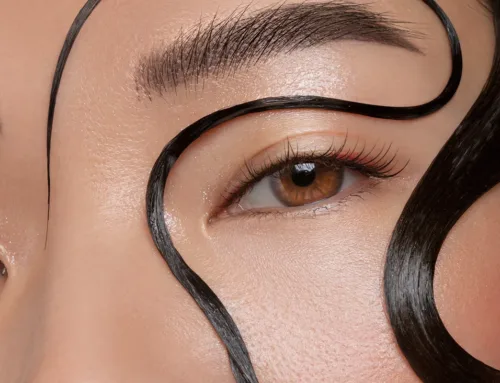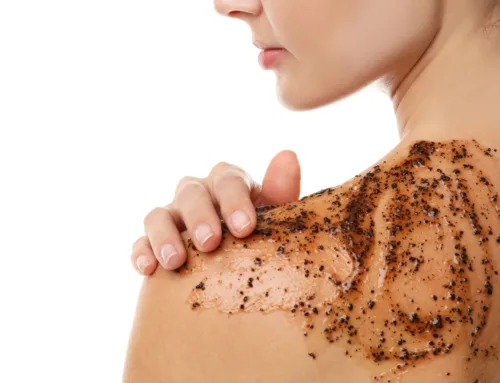
Stress can Worsen Skin Conditions: Exploring the Brain-Skin Connection
Stress has long been linked to various diseases, including hypertension and migraines. It can also exacerbate skin conditions, as evidenced during the pandemic. Although the relationship is well-established, the underlying mechanisms remain unclear. However, embryology suggests that the skin and brain share cells and pathways, supporting the idea of a connection between the central nervous system and skin.
Understanding Stress and Its Effects on the Body and Skin
Stress is a natural response to pressure, whether physical, mental, or emotional. When stress overwhelms our coping mechanisms, the body produces hormones that help us adapt. In the short term, these hormones can affect blood pressure, heart rate, blood sugar levels, and mood. However, prolonged stress can lead to lasting changes that affect our overall health, including skin health.
The main pathway for stress hormones is the HPA axis, which involves the hypothalamus, pituitary gland, and adrenal gland. Cortisol, the main stress hormone, remains elevated in those with chronic stress. Interestingly, the skin also has a peripheral HPA axis, and cells in the skin release CRH, ACTH, and cortisol. Other stress hormones, such as adrenaline, noradrenaline, neurotrophies, substance P, and prolactin, are also released by cells in the brain, endocrine system, and skin. As a result, the skin is both a producer and a target of these hormones, which can affect the course of many skin conditions.
The Impact of Stress Hormones on the Skin and Skin Conditions
Stress hormones have a range of effects on the skin, including impairing the skin barrier function, immune function, wound healing, and fibroblast function. They can also increase inflammation, sebum production, melanogenesis, and angiogenesis. Inflammation is a major contributing factor to disease exacerbation in the body and the skin, and stress can worsen inflammation through various mechanisms. As a result, stress can aggravate skin conditions like psoriasis, eczema, acne, urticaria, and rosacea, or trigger the onset of a new skin condition. Chronic stress can even accelerate the aging process.
Atopic Dermatitis (AD): The Impact of Stress
AD is a chronic inflammatory skin disease characterized by a defect in skin barrier function and a faulty inflammatory response. Stress exacerbates AD by impairing the integrity of the skin barrier, leading to trans-epidermal water loss (TEWL). Stress causes the release of hormones in the skin that increase inflammation and worsen eczema. Impaired barrier function also means that more irritants can penetrate the skin and further worsen inflammation. Common scenarios that demonstrate the effect of stress on eczema include worsening of eczema during exams, pregnancy, and conditions affecting general health and well-being.

Also read: How Stress Affects the Skin
Psoriasis: The Role of Stress
Psoriasis is a chronic skin condition characterized by the overproduction of keratinocytes and inflammation, which leads to itchy, red, and thickened psoriatic plaques.
It is well known that psoriasis is worsened by stress, although the exact mechanism is still uncertain. One theory suggests that activation of the HPA axis by stress causes increased ACTH and cortisol, promoting proliferation and inflammation. Another theory suggests that increased substance P released by nerve fibers in the skin of patients with psoriasis triggers an inflammatory response. High levels of cortisol have also been found in the blood and psoriatic plaques of patients with psoriasis.
Rosacea
Rosacea is a skin condition that is distinguished by vascular hyperreactivity resulting in dilated blood vessels and inflammation. Rosacea sufferers tend to flush in response to different triggers such as hot drinks, spicy food, and emotional stress. Stress hormones play a significant role in increasing inflammation and skin sensitivity, while histamine released from mast cells during stressful situations is also known to cause flushing.
Urticaria
More than 50% of urticaria or hives cases have no identifiable cause, but psychological factors have consistently been shown to trigger episodes. The most likely mechanism is anxiety, which causes the release of cortisol and adrenaline, leading to inflammation and the release of histamine from unstable mast cells.
Excess Sebum Production and Acne Outbreaks
While stress doesn’t directly cause acne, it can worsen it. This is because stress triggers the adrenal glands to produce more adrenalin, cortisol, and androgens, which stimulate the sebaceous glands to produce more sebum. The excess sebum can clog follicles with dead skin cells and keratin, creating an ideal environment for acne-causing bacteria to proliferate, leading to inflammation and breakouts on the skin. Moreover, sebocytes have CRH receptors that promote sebum production. Additionally, during times of stress, individuals may pick at their acne spots, further worsening the condition.
The Function of the Skin Barrier
The uppermost layer of the skin, called the stratum corneum, is made up of a combination of proteins and lipids that form a protective barrier. This barrier is responsible for preventing the entry of bacteria and irritants into the skin, while also maintaining hydration by reducing water loss (TEWL) from the skin.
While the exact mechanism is still unclear, studies have revealed that stress, including reduced sleep, can alter the protein and lipid composition of the stratum corneum, leading to impaired barrier function. This, in turn, can result in dehydration and flaky skin. If left untreated, it can trigger an inflammatory response and potentially lead to dermatitis.
Impairment of Wound Healing
The wound healing process relies on the actions of fibroblasts and keratinocytes, which are skin cells regulated by various chemical mediators. However, studies have shown that periods of stress, accompanied by elevated levels of cortisol and epinephrine, can impede the functions of these cells and delay wound healing. This is particularly evident in patients with psychiatric conditions such as anxiety, depression, and dementia, who are likely to experience psychological stress. Additionally, stress can compromise the immune function of the skin, increasing the risk of infection during the healing process and further delaying recovery.
Chronic Stress and Its Impact on Skin Aging
Ageing is influenced by a range of factors such as genetics, lifestyle, and environmental factors. However, psychological stress can also contribute to the ageing process. While short-term stress can sometimes have positive effects, chronic stress can suppress immune function, leading to increased susceptibility to infections, inflammation, and skin cancers.
The skin’s immune function is responsible for protecting against both ultraviolet (UV) damage and infection, thereby guarding against skin cancers. However, suppressed skin immune function can increase the likelihood of skin cancers occurring.
As we age, our DNA shortens with each cell division, known as telomere shortening. Chronic stress can further reduce the length of our telomeres, accelerating the ageing process.
Chronic stress can also reduce the production of healthy fibroblasts, which synthesize collagen and elastin, and the extracellular matrix. This results in thinning of the dermis, loss of elasticity, and the appearance of fine lines and wrinkles.
Furthermore, chronic stress can increase the production of Alpha MSH, a hormone that promotes pigment production in melanocytes. This can lead to skin hyperpigmentation, which may be exacerbated by severe illness, lack of sleep, and other stress-related factors.

What steps can be taken to move forward?
Moving forward, it is becoming increasingly clear that there is a significant link between the brain and skin, indicating that stress management should be a crucial aspect of managing most skin conditions.
To begin, it’s essential to identify the sources of stress and work on managing them as effectively as possible. This can be challenging since stress can manifest in various ways and affect the body as a whole. Additionally, some individuals may not even realize that emotional stress is contributing to their worsening skin condition. Therefore, doctors and dermatologists need to rule out all potential explanations for disease exacerbation before considering stress as a contributing factor.





